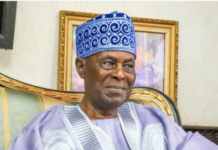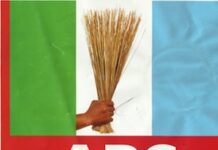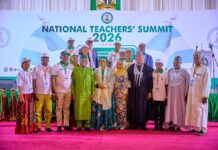

The Minister of Information and Culture, Alhaji Lai Mohammed, has said the annual National Festival of Arts and Culture (NAFEST) has evolved from being just an instrument of national unity to becoming a platform to help boost the level of economic activities in the country
The Minister said this in Abuja on Thursday at a press conference to herald the 2016 edition of the festival, to be held in Uyo, Akwa Ibom State, 2-9 Oct, with the theme “Exploring the Goldmine Inherent in the Nigerian Creative Industry”.
He said NAFEST, which was introduced in 1970 as a vehicle to foster unity among the various sections of the country after the 30-month civil war, would now be explored to contribute meaningfully to the nation’s economy.
Alhaji said the new direction of the festival, which attracts participants from the 36 states as well as the Federal Capital Territory, is reflected in the theme of this year’s festival which, he said, is geared towards using our various cultural products and expressions to develop a creative economy and, at the same time, promote the patronage of Made-in-Nigeria products.
“Indeed, festivals around the world are moving from just being a forum to showcase arts and culture to becoming a tool for economic growth. Creative industries are becoming creative economies. More and more people are moving from manufacturing concerns to creative concerns, and no country wants to be left behind. This is why this Administration has included the creative industries, as well as tourism, among the core areas for the diversification of the economy away from oil,” he said.
The Minister, who commended the tremendous role played by NAFEST in cementing the bond of unity among Nigerians, said the Festival still remains very relevant to national cohesion and integration.
“Today, some 46 years after the civil war, the festival is more relevant than ever. There is an urgent need to bring us closer together as a people, amid widening divisions along ethnic, religious and social lines. The fact that contingents from different parts of the country come together annually, irrespective of their ethnicity or religion, to showcase their arts and culture and leverage on their comparative advantage is very healthy for our country,” he said.
Alhaji Mohammed disclosed that the government is collaborating with local and international partners, including the British Council and the Tony Elumelu Foundation, to enhance the capacity of festival managers through training, in addition to mapping the various arts and culture festivals across the country as part of the deliberate effort to turn festivals into an economic entity.
He commended the organizers of NAFEST for outlining various activities such as the Indigenous Poetry Performance (Children Participation), Drama, Arts and Crafts Competition, Essay Writing as well as Drawing and Painting Competitions, indigenous Cuisines and Traditional Wrestling to further enhance the quality and uniqueness of this year’s festival.
On her part, Mrs. Dayo Keshi, the Director General of the organisers National Council for Arts and Culture (NCAC), said NAFEST has a peculiar characteristic of focusing on indigenous cultures and heritages, with a view to creating a multiplier effect on income generated at the grass roots.
She said a special feature of this year’s NAFEST is a colloquium to brainstorm on how to make the festival a contributor to the nation’s GDP.





